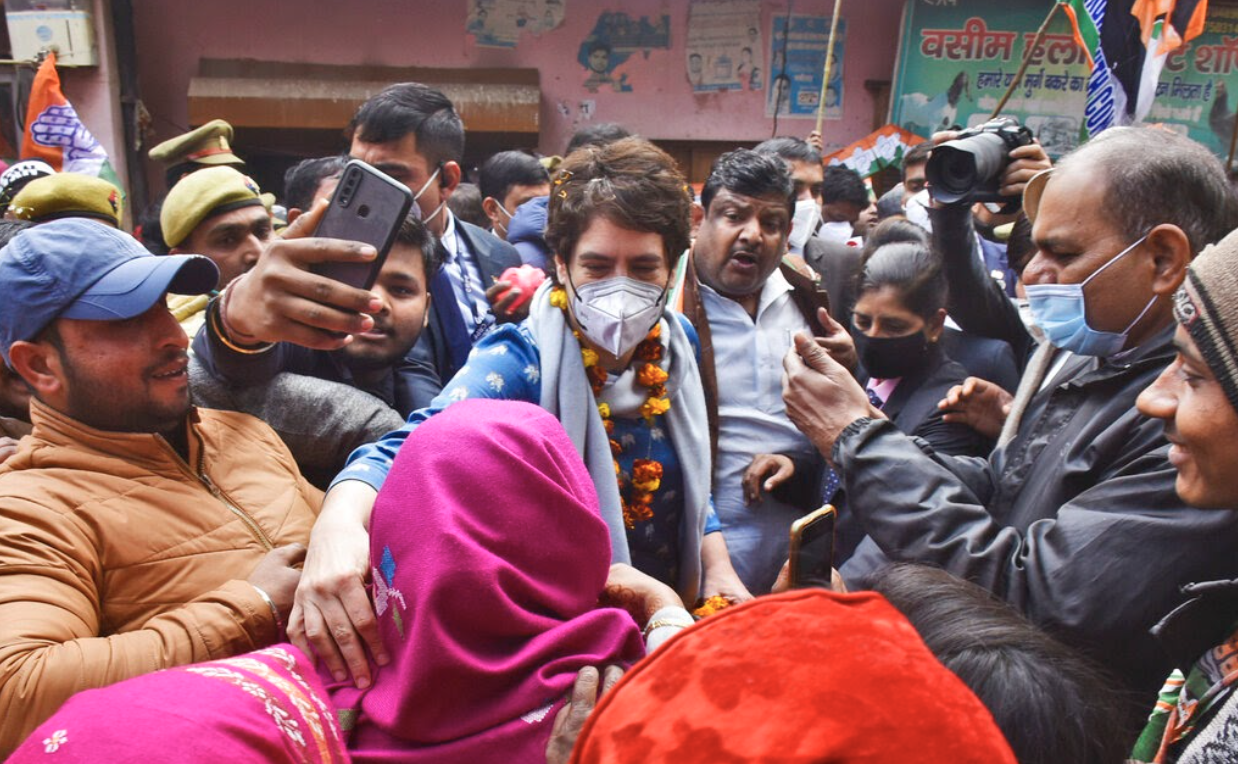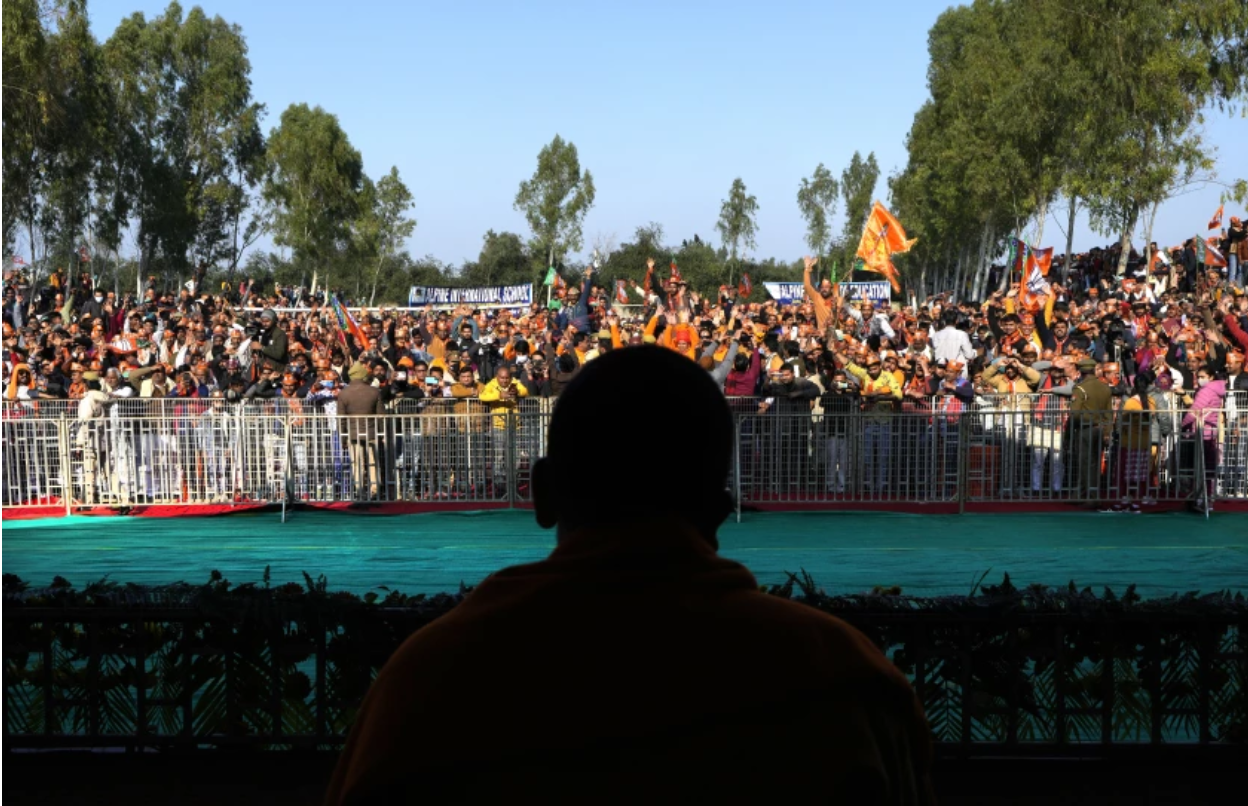India’s Biggest State Goes to Election as Modi’s Popularity Falters
Millions head to the polling booths in India this spring amidst mounting tensions surrounding the coronavirus. Photo: Associated Press.
In a televised speech presented to the Indian Parliament on Monday, Prime Minister Narendra Modi slammed leaders of the opposition parties, including that of the Indian National Congress, for their negligence and mishandling of the coronavirus. In retaliation, Arvid Kejriwal, one of the prominent opposition leaders, took to Twitter and labeled the Prime Minister’s remarks as “an outright lie.”
The Prime Minister’s speech sparked controversy amongst voters for whom the pandemic response is a crucial area of interest in the upcoming Indian general assembly elections. Key Northern Indian states like Uttarakhand, Uttar Pradesh and Punjab as well as Manipur and Goa are going to polls this month.
On Monday, Modi blamed Congress for the rise in coronavirus cases as chief ministers from different states tried to send back migrant workers to their home state– in effect, allowing travel away from COVID-19 hotspots (especially cities). This action allowed the virus to spread to even further, remote areas. However, Modi failed to call out states controlled by his own party, the Bharatiya Janata Party (BJP), and focused on criticizing the case surges in New Delhi and Mumbai.
Specifically, Modi went after Arvind Kejriwal, the chief minister of New Delhi, for leading political rallies in multiple states– and more recently a marathon– all while not wearing a mask.
This event resulted in Kejriwal contracting the virus. Though some politicians, including those a part of the BJP, have tried to err on the side of caution, many rely on massive rallies for votes and have disobeyed COVID-19 regulations themselves.
A series of restrictions were put in place this January that forbade any in-person rallies, a staple in India’s elections. With the surge in cases in last year’s state elections and the current effect of the new Omicron variant, the nation has tightened its rules when it comes to the virus. These restrictions led to a series of e-rallies to make up for the lack of mass gatherings. But the online rallies proved to be ineffective, making politicians desperate for an alternative.
Politicians have devised a new method to get around the ongoing restrictions on in-person rallying: door-to-door campaigning. However, this is often conducted mask-less, with politicians handing out flyers to different neighborhoods while having large groups of supporters following them around. Recently, Pankaj Singh, a BJP politician from the state of Uttar Pradesh (UP), organized a gathering of his supporters in a park to watch the speech given on Monday by Modi on a TV. Regardless of the rules put in place to promote safety against the coronavirus, the election is taking a toll on the country.
Uttar Pradesh Chief Minister Yogi Adityanath awaiting to address an election rally in Shamli, India, Saturday, Feb. 5, 2022. Photo: Rajesh Kumar Singh/Associated Press.
The ongoing election is long, as each state takes its time to vote. Currently Uttar Pradesh is casting its vote and everyone is watching. Because Uttar Pradesh is the most populous state, with a population of about 240 million people, it has a strong pull in the final results. Although the BJP has historically led the race in UP, politicians are still desperate to campaign and win votes in a state that is crucial to the future of democracy in India.
Modi’s popularity across the country has begun to falter. Middle class workers and farmers are bearing the brunt of the rising prices. Hate speech is being continually used against members of the Muslim community– including prominent journalists like Rana Ayyub, who recently received death and rape threats for critizing the Modi government. The key question is: will the BJP provide economic relief to those in need and make promises for a better future, or continue to strategize in this election along religious and caste lines?


